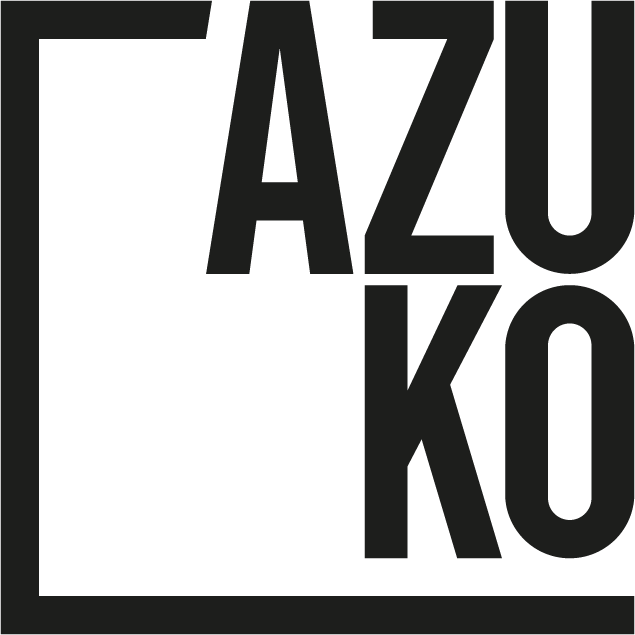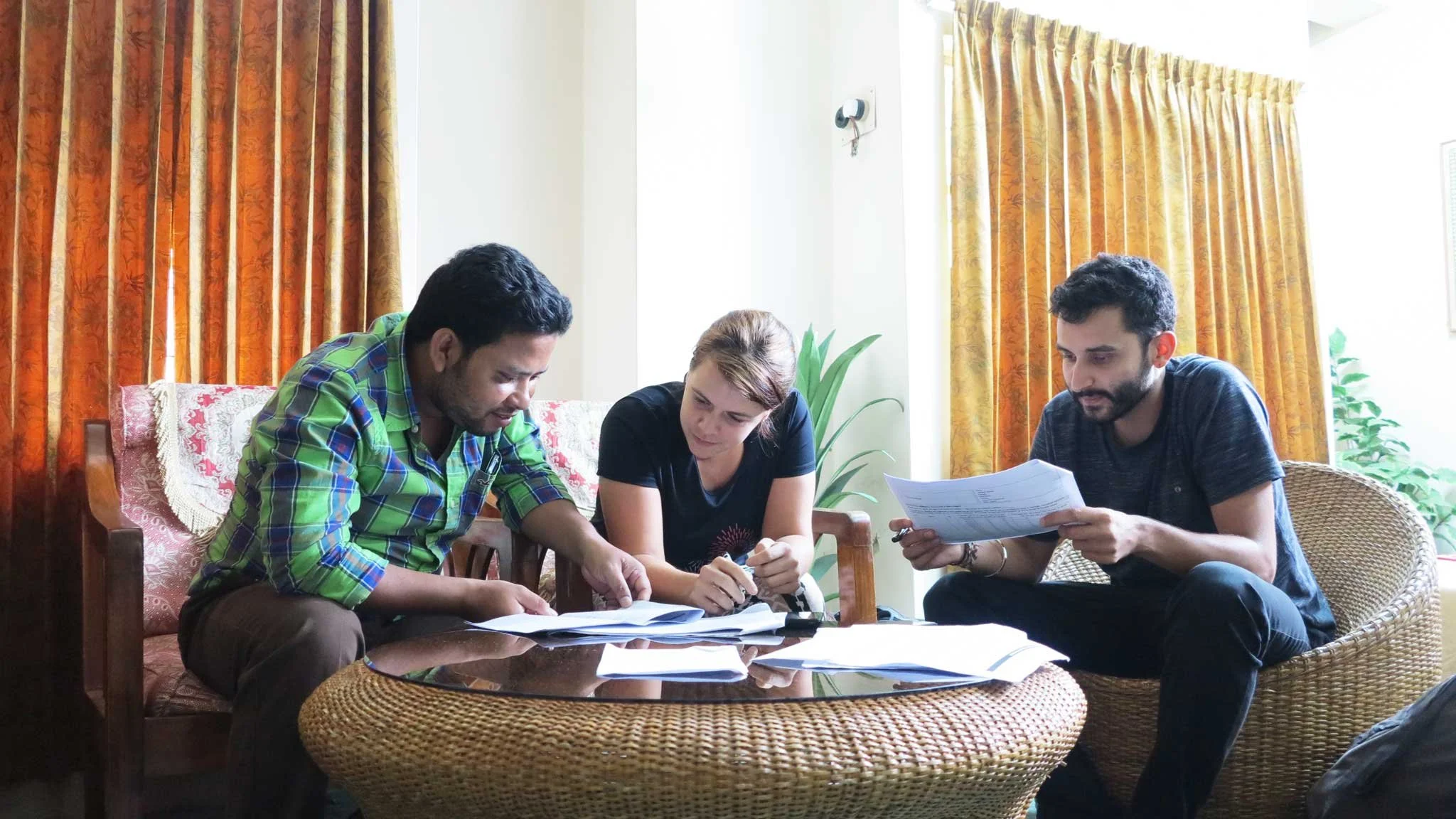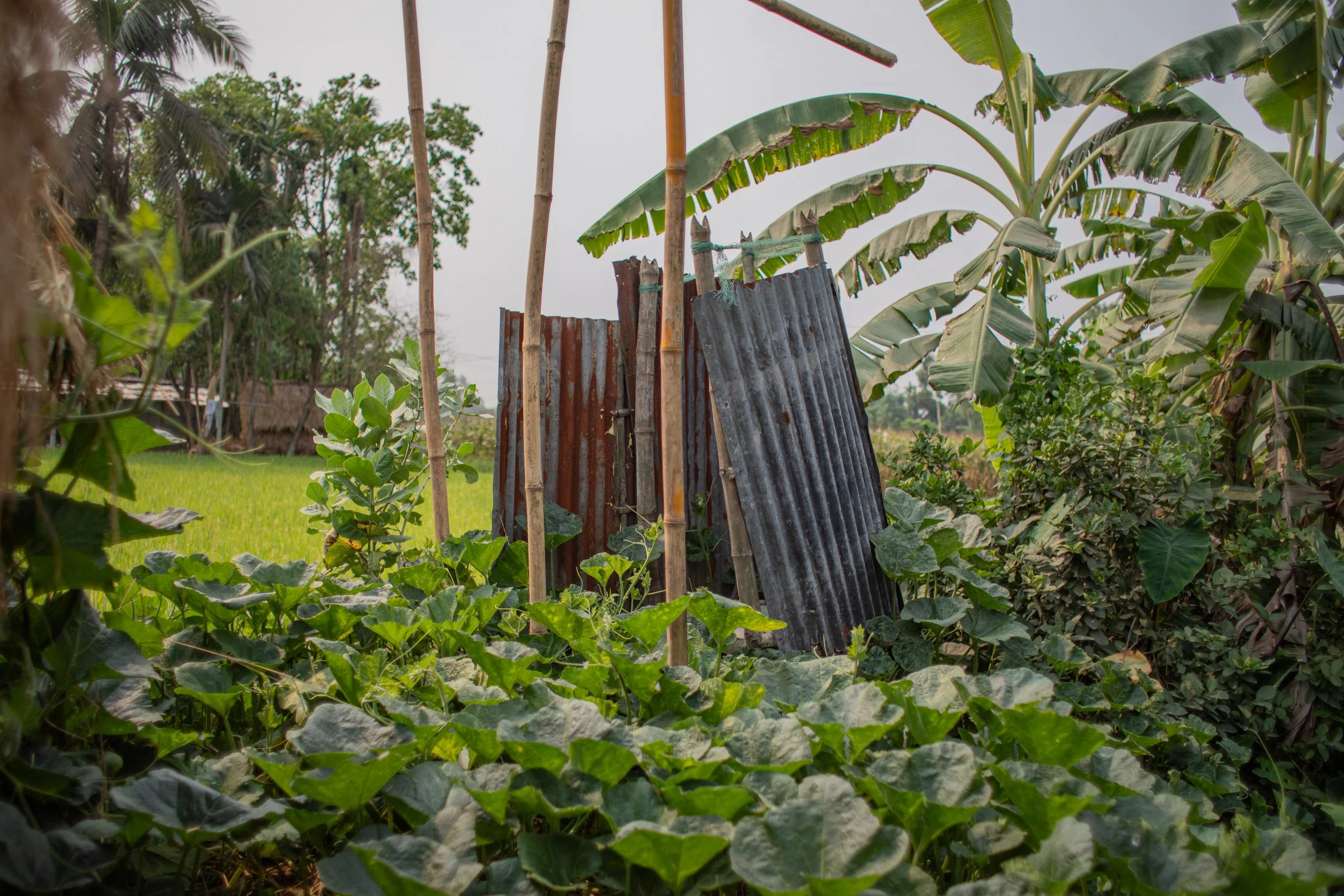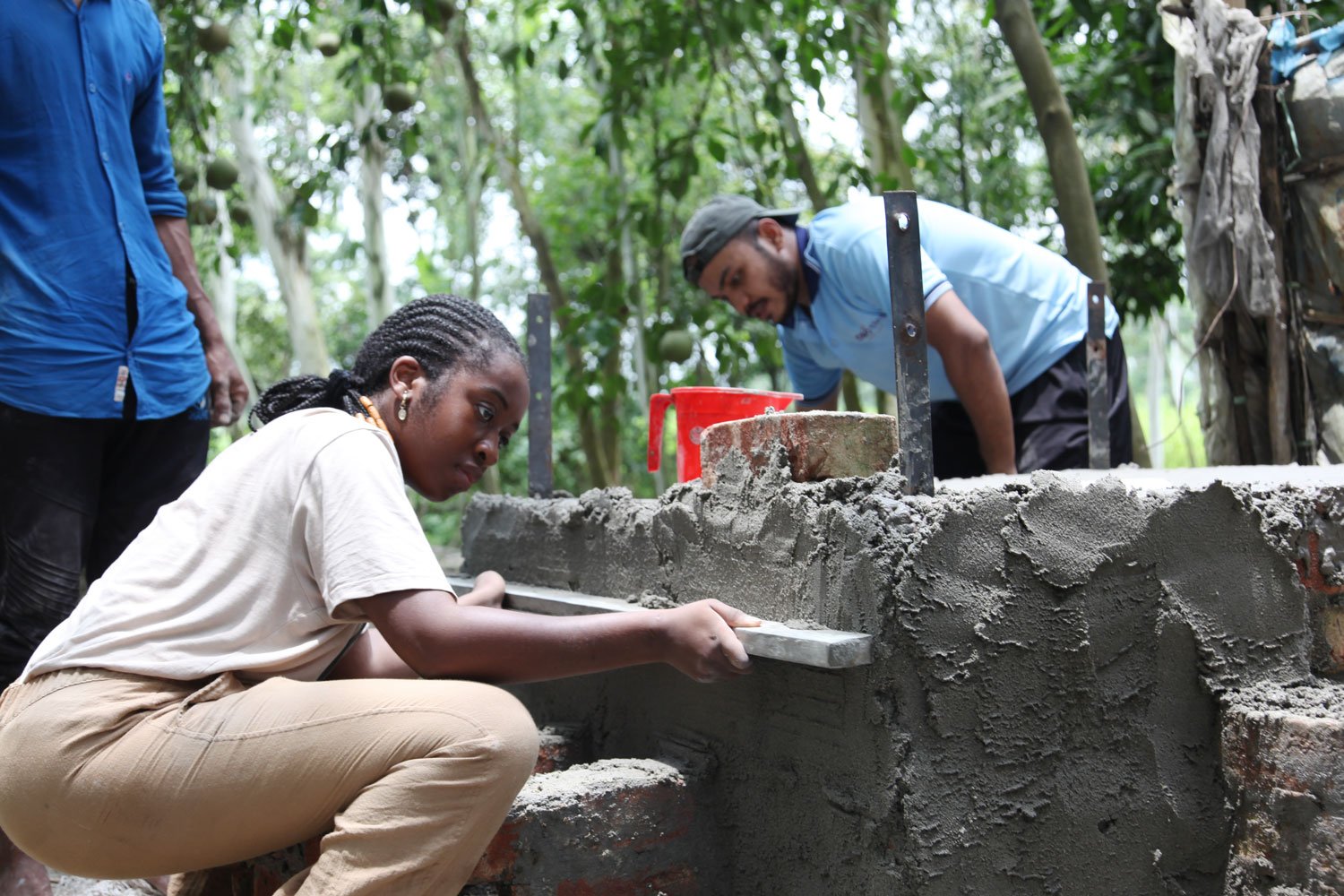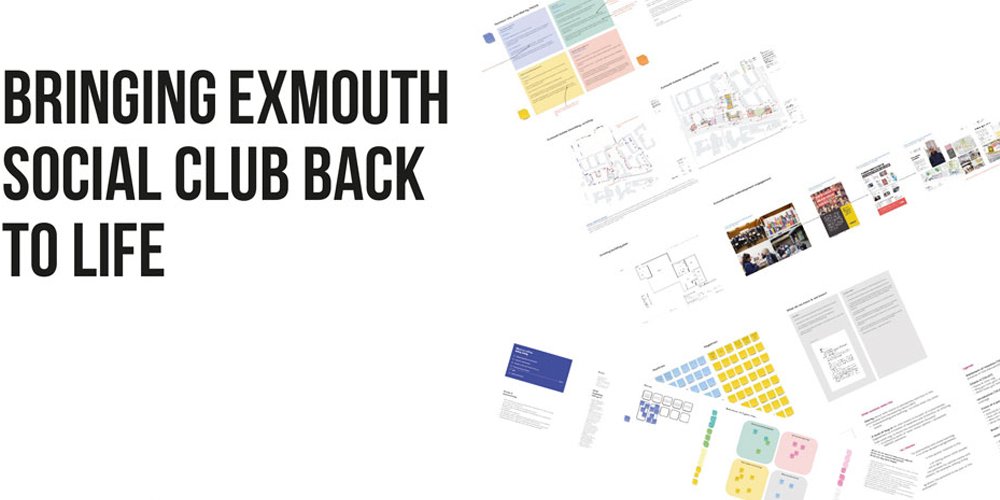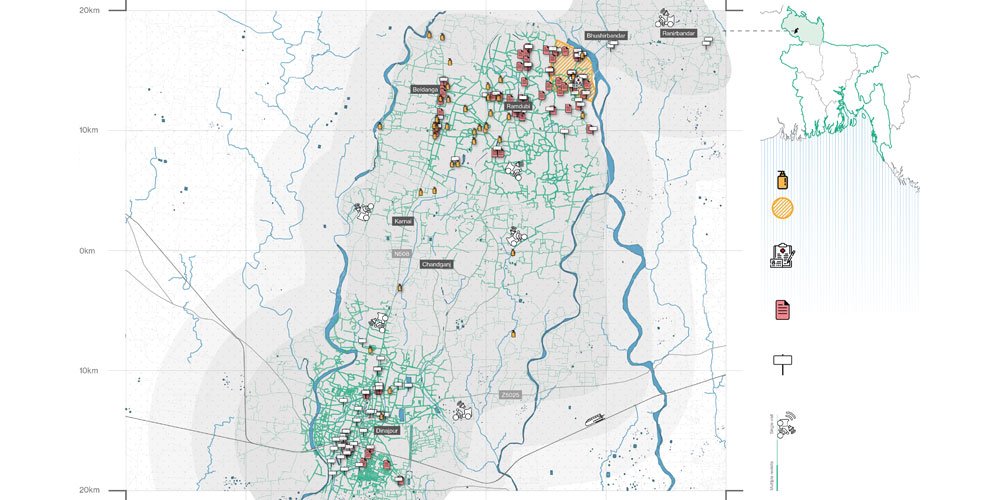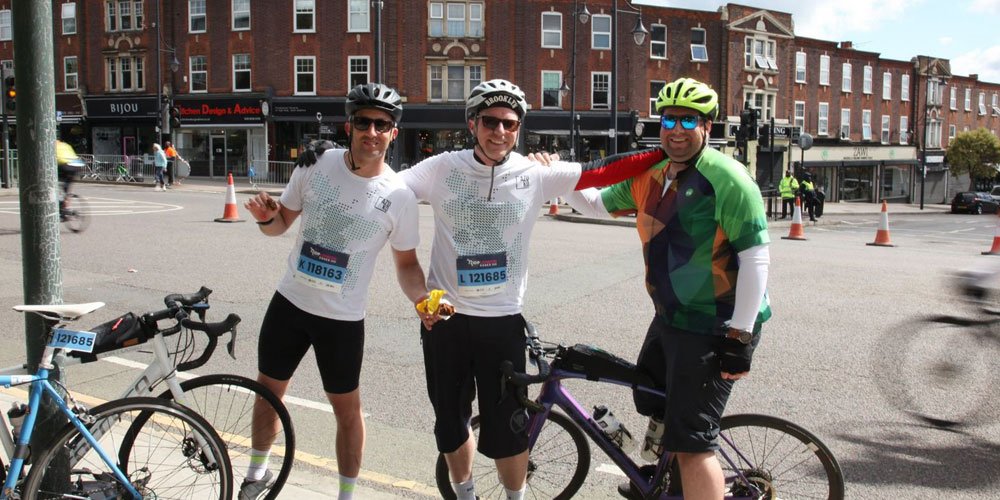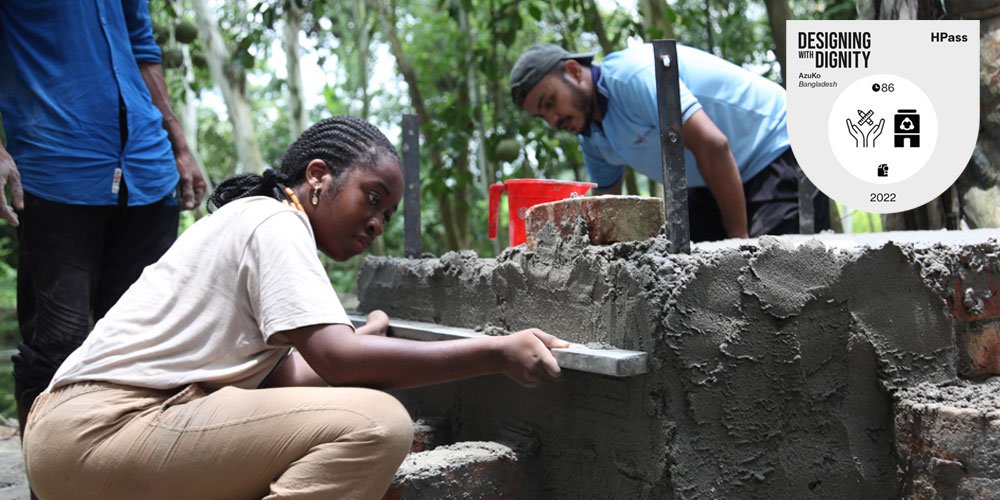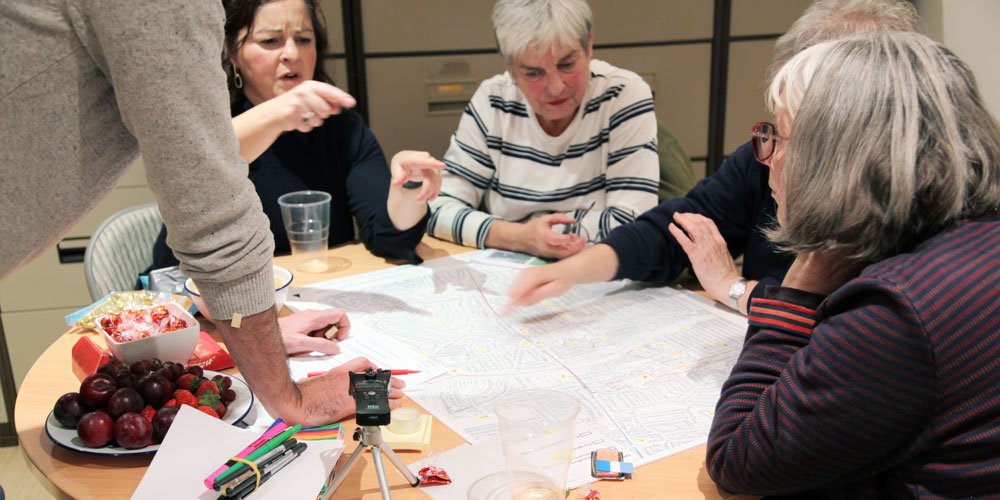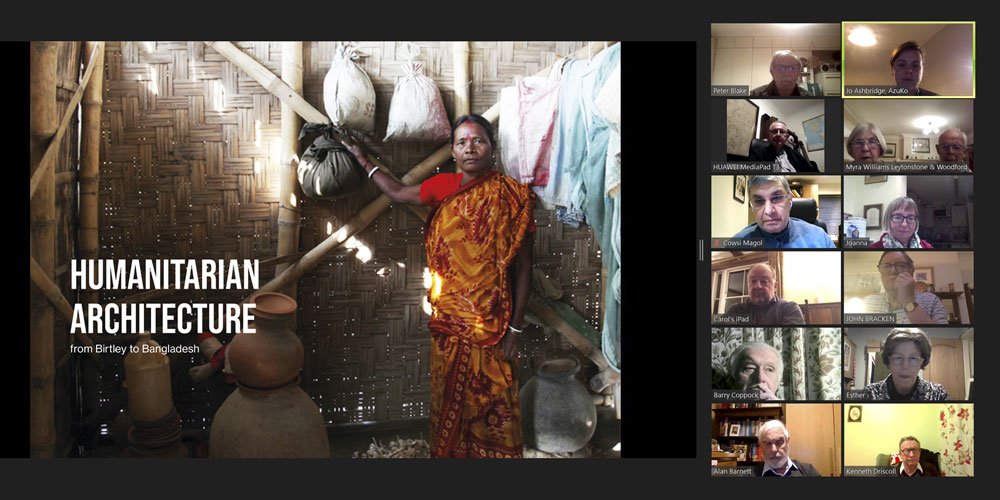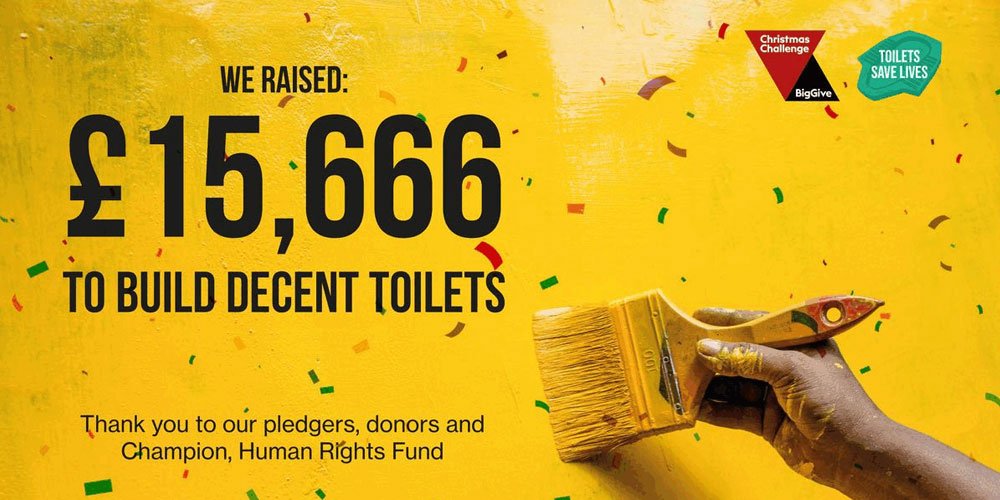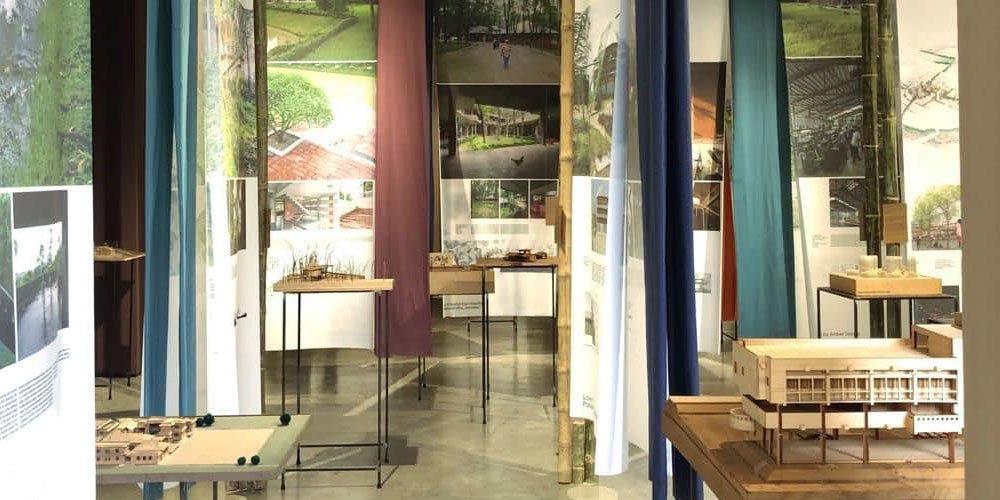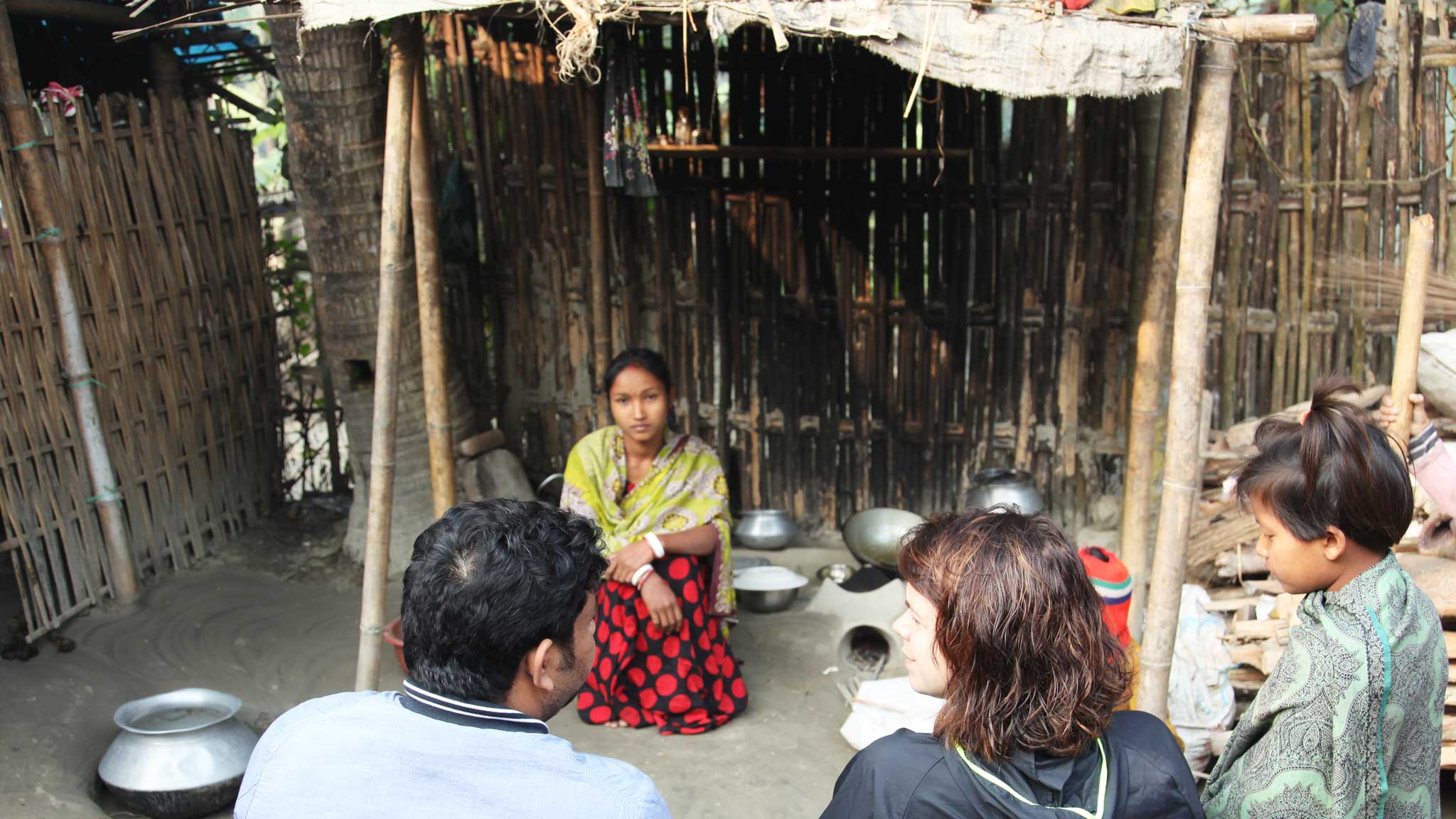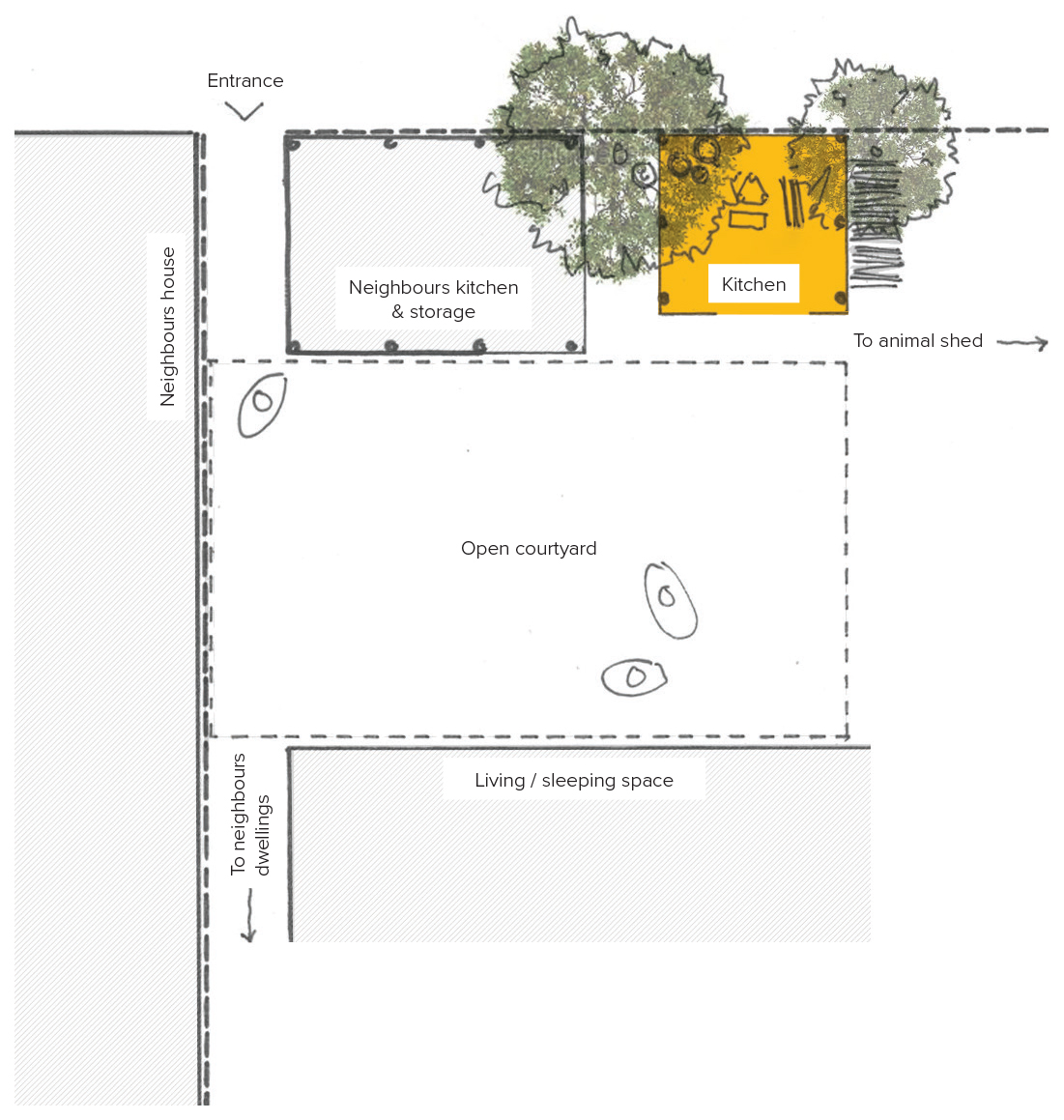When you meet Aretha, it’s clear she’s on track to make a difference. Her energy and enthusiasm for whatever she’s involved with – studies, tutoring, volunteer work – is infectious.
She’s currently studying a Masters in Engineering and Architectural Design in London, and contributes to important dialogues to increase diversity in the profession, such as the Black Females in Architecture network.
“I began to seek architectural experience during my final years of sixth form, it quickly became apparent that I could not see myself reflected within the industry.”
An early mentoring experience at the age of 17, which helped pave her way into architecture school, has motivated Aretha to give back. She joined AzuKo’s Designing with dignity course in Bangladesh to learn about humanitarian architecture, and the tools to design more ethically and collaboratively.
“Designing with dignity is a hands-on, life-enriching course that pushes you to the edge of your comfort zone. It challenges you to question every pre-conceived notion you have of architecture and encourages a truly collaborative design process, where every voice can be heard.”
Throughout the course, Aretha worked hard to listen, learn and lead with empathy. She helped conduct a needs assessment, map a community and their assets, and held interviews to understand more about the challenges people face, their hopes and dreams.
Almost half the population of Bangladesh don’t have access to a clean, safe toilet of their own. It’s simply unacceptable. Aretha was not afraid to get her hands dirty. Working alongside a family, and supported by our local construction team, she built a new twin-pit, pour-flush toilet. An incredible achievement, that will bring safety and dignity.
“I learned that it is really important not to centre yourself within humanitarian work, especially when building for others or creating things that need to benefit other people. It can be so easy to impose your own way of doing things (even if you have the best of intentions) but this is not how you achieve the best result. I think it really strengthened my ability to listen and help.”
Inspired by her time on the course, Aretha is now looking to take a new module ‘Engineering for International Development’ during her final year at university. She has recently been accepted on a summer course to improve water, sanitation and hygiene in schools in Uganda, and will be mentoring 16-18 year olds in the UK sharing her experience and helping to break down barriers to architecture.
Want to know more? Register your interest to join Designing with dignity, Bangladesh in 2024.
